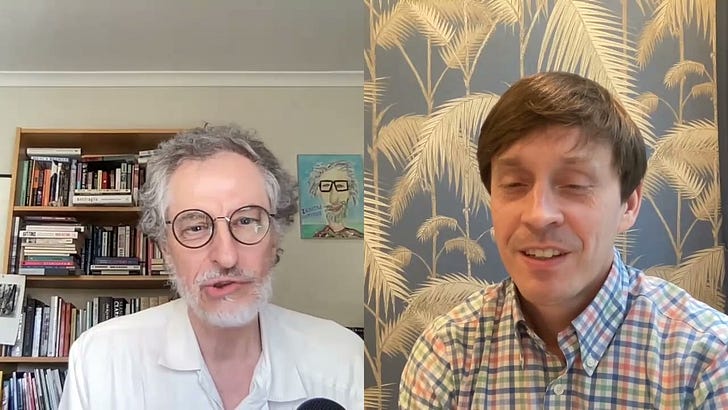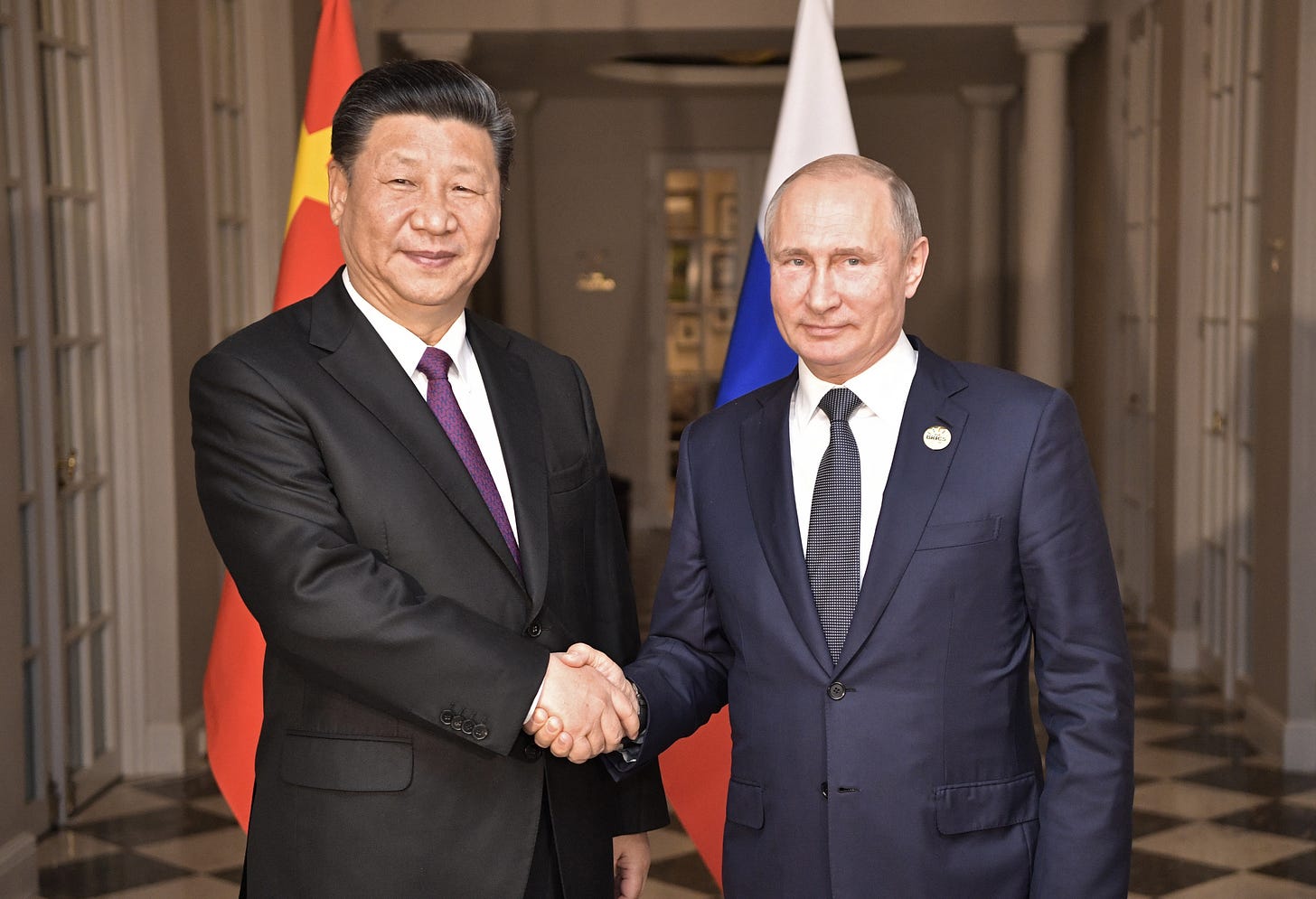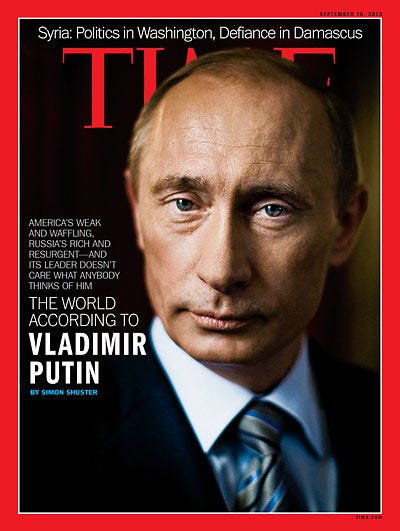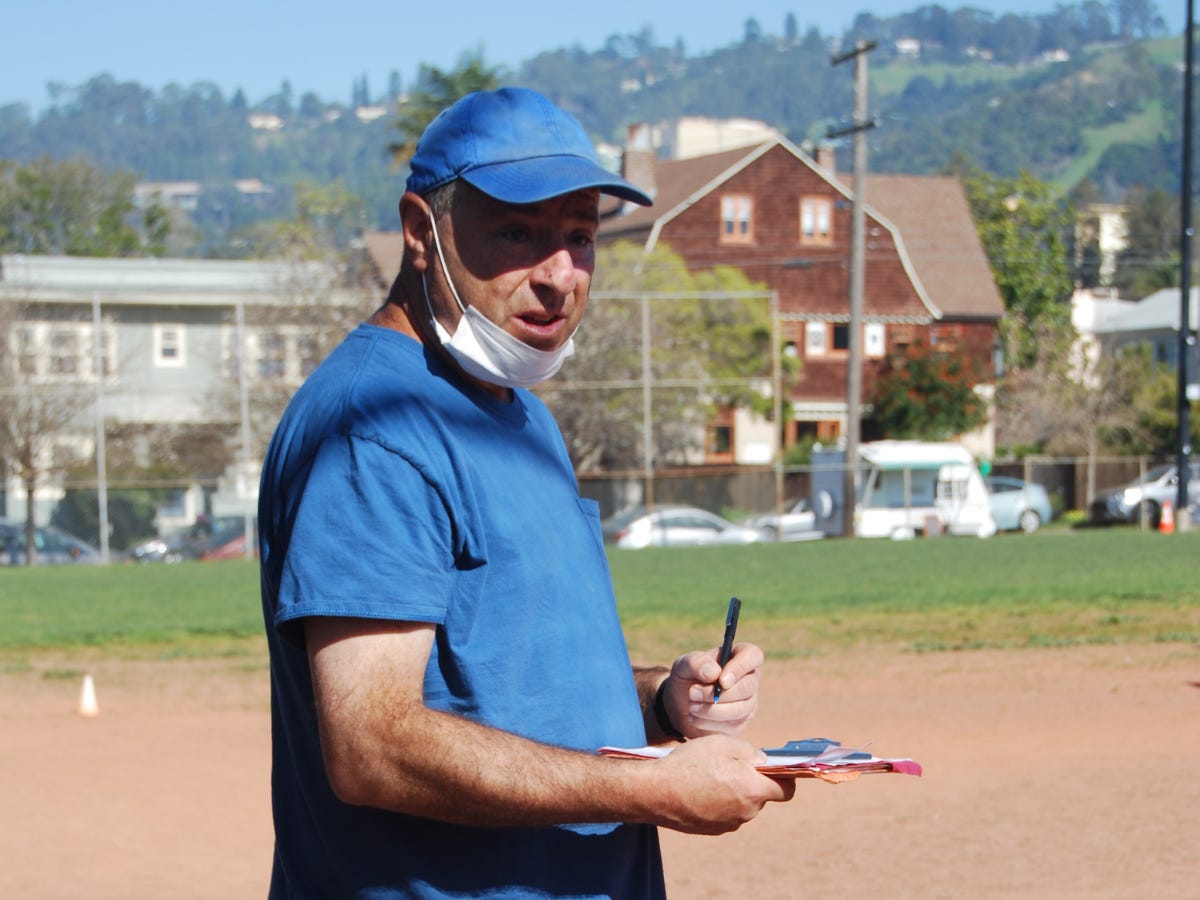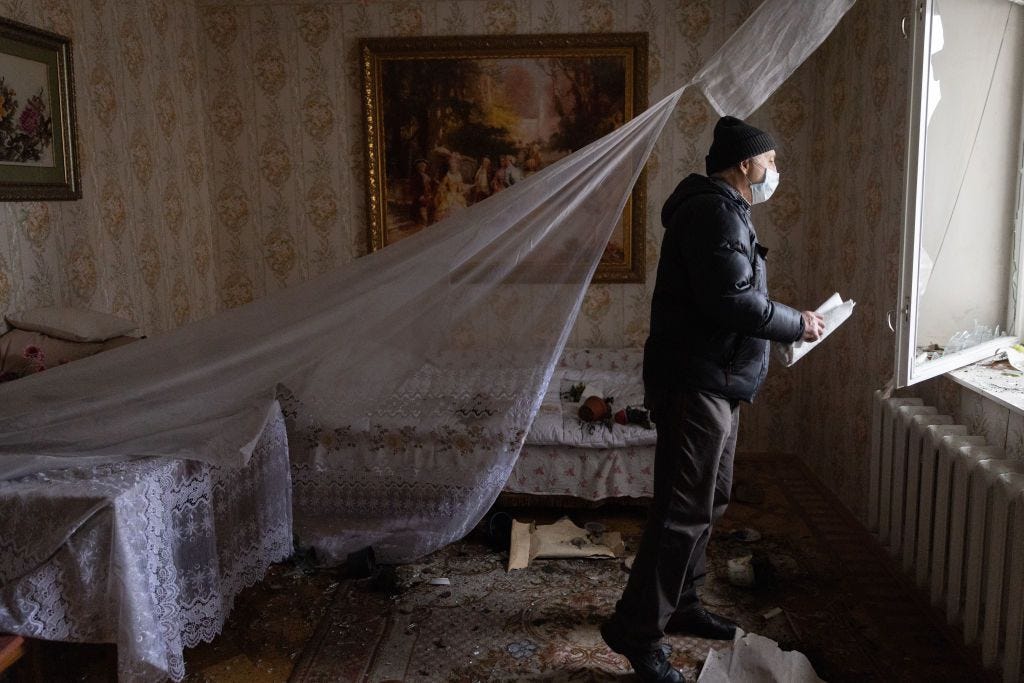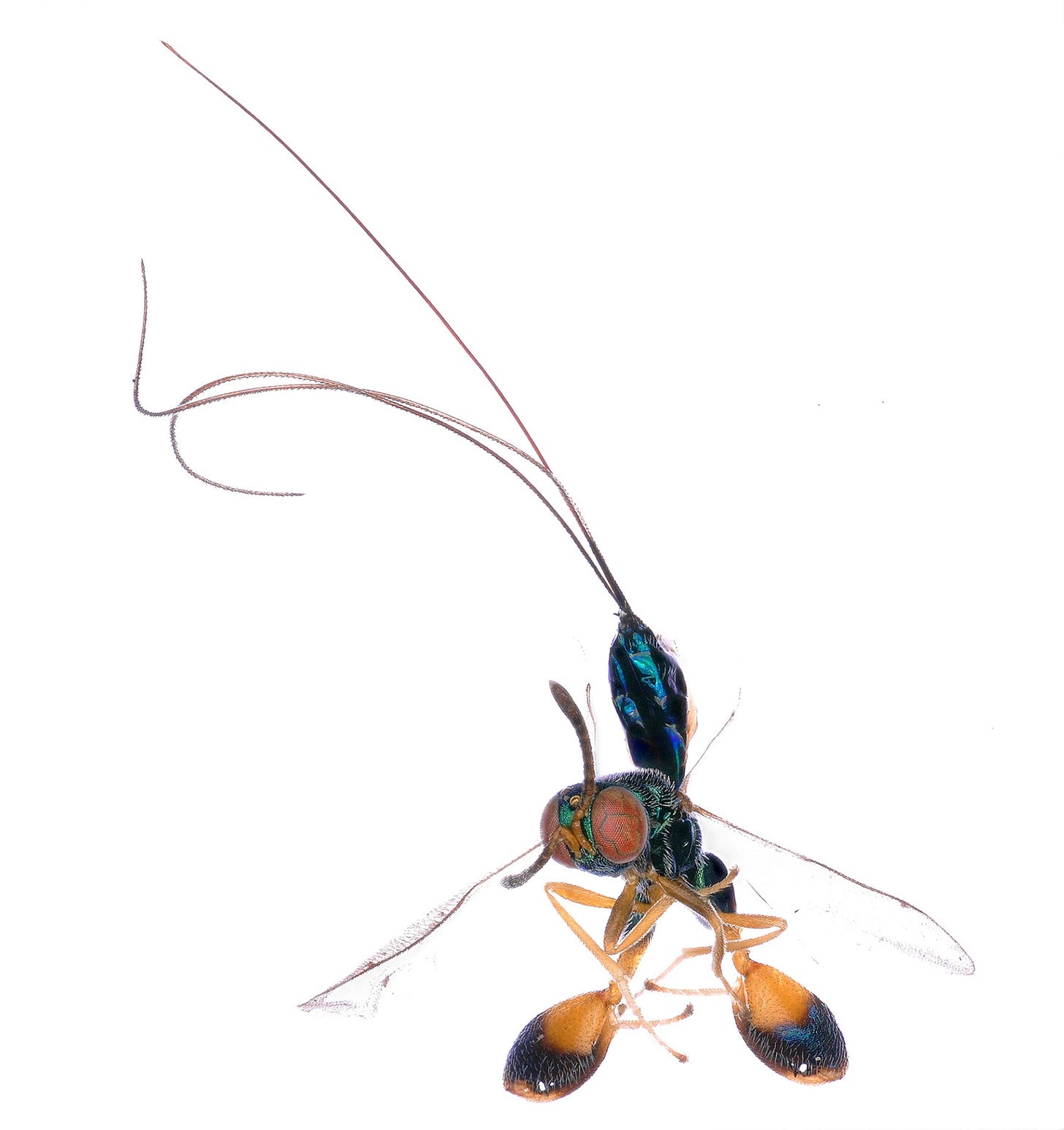How Volodymyr Zelenskyy sent courage viral
It’s extraordinary to think that the war in Ukraine is barely more than a week old. History has sprung back to life!
Unsurprisingly much of my newsletter is taken up with it.
How Volodymyr Zelenskyy sent courage viral
Another great discussion with my friend Peyton Bowman. We began with a passage from William James on faith. Though the essay does discuss religious faith, it starts more mundanely, speaking of the way faith makes community life possible by knitting people together in bonds of mutual rights and obligations.
One implication is that social life is necessarily a network phenomenon. Further, even without this, it is 'kaleidic'. That is, an apparently small change can make all the difference between the way the whole scene looks — and can for instance throw the switch from pessimism to optimism. This kind of thing often happens in the economy. People's pessimism is mutually reinforcing and depresses the economy generally, until one day when things change and their optimism becomes reinforcing.
We then talk about the different metaphors that have been used for government. In ancient and early modern thinking, society is often conceived of as being like a human body with government being the brain. Peyton references a speech by the Roman statesman Agrippa in which government is likened to the stomach. I think this switch helps us spot some of our modern hubris.
I argue that Zelenskyy is playing the role Winston Churchill played in 1940, but that in a world bathed in bullshit, Zelenskyy's physical courage makes a greater contribution today than it did in Churchill's time. It cuts through the bullshit, it demonstrates that he's not just another bullshit artist. He means what he says. And I cavil at the cliché that he's is 'inspirational'. He is, but the word is so bandied about that we're dead to it.
I focus on something closer to home, more humdrum and, because of it more profound. Zelenskyy's actions move us because he did his job, like the captain of a ship that has foundered committing themself to save all it or go down with the ship. And we're in a different world to that. Where politicians never say quite what they mean (why — because if they did we wouldn't vote for them!), and where our own job may not make that much sense, and whether it does or not everyone's keeping their eye on their next career move. In any event, the contrast Zelenskyy's actions made with all this were enough to set a cascade of effects going, as we have seen in the last week.
As much as we buy into the magnificence of these actions and the courage they showed, we end on the note of prudence. We are talking about heightened conflict between nations that can with the press of a button — including as a result of miscalculation, misunderstanding or more mundane cockup — annihilate all that we value.
Other writing on Ukraine
Spheres of influence
Here’s a tweet thread showing the breadth of support for the idea that the West has been courting disaster in expanding towards the Russian border. But immediately beneath it, Martin Wolf disagrees.

Martin Wolf on fighting the new tyranny
Putin may be the most dangerous man who has ever lived. He is dedicated to restoring Russia’s lost empire, indifferent to the fate of his own people and, above all, master of a vast nuclear force. Yet resistance, however risky, is imperative. Some will insist that Putin’s actions are the west’s fault and above all the result of its decision to extend Nato. The reverse is the case. Putin has reminded us why the countries that knew Russian rule best were desperate for Nato’s expansion. He has also demonstrated why it was necessary. Europe needed a defended border between Russia and its former possessions. Ukraine’s tragedy is to be on the wrong side of that line. It did not pose a threat to Russia, other than by wanting to be free; Russia posed a threat to it. …
A war of choice on the children of a peaceful democracy is not an action we in the west can allow ourselves to forget. Nor can we forgive those who started it or those who support it. The memories of our own past must forbid it. We are in a new ideological conflict, not one between communists and capitalists, but one between irredentist tyranny and liberal democracy. In many ways, this will be more dangerous than the cold war. Putin holds unchecked and arbitrary power. So long as he is in the Kremlin, the world will be perilous. It is not clear whether the same is true of China’s Xi Jinping. But we may yet learn that it is.
This is not a conflict with the Russian people. We should still hope for them a political regime worthy of their contribution to our civilisation. It is a conflict with their regime. Russia has emerged as a pariah ruled by a gangster. We cannot live in peace and security with such a neighbour. This invasion must not stand, since its success would threaten us all. We are in a new world. We must understand that and act accordingly.
'Every one of us is the president now', inauguration speech - 2019
I tried to work out what I love so much about great speeches here. And cometh the hour cometh the speech. One would have to have a heart of stone for Zelenskyy’s contributions not to put a spring in one’s step. As I tweeted during the week and discuss with Peyton — see above — here’s William James on Volodymyr’s exploits and what they might mean for our stale, disillusioned world:
A social organism of any sort whatever, large or small, is what it is because each member proceeds to his own duty with a trust that the other members will simultaneously do theirs. Wherever a desired result is achieved by the co-operation of many independent persons, its existence as a fact is a pure consequence of the precursive faith in one another of those immediately concerned. A government, an army, a commercial system, a ship, a college, an athletic team, all exist on this condition, without which not only is nothing achieved, but nothing is even attempted. A whole train of passengers (individually brave enough) will be looted by a few highwaymen, simply because the latter can count on one another, while each passenger fears that if he makes a movement of resistance, he will be shot before any one else backs him up.
In any event click through if you want to read Zelenskyy’s First Inaugural!
Noah Smith on the China connection
Lots of good stuff here if you’re interested. The bottom line(s)
The China-Russia economic super-block faces the following difficulties:
[If China were to help Russia avoid financial sactions, it] will take a long time and a lot of uncomfortable structural change to set up.
[If China were to become a major energy purchaser from Russia] Railway and pipeline transport across Siberia is poor and will need to be financed by China.
[The resulting] Dependence on China will cause Russia to become a satellite state of China.
Thus, while I expect to see efforts in this direction, I don’t expect these efforts to change the shape of the global economic landscape. Russia is still in for a world of pain, and China is not going to see vast new economic opportunities.
Might Russia respond to sanctions with MMT and what if it did?


Adam Tooze picks up the story.
If it was the rigidity of the Russian fiscal state that hitherto translated external shocks into shocks for the Russian population, what if Putin’s regime responds to its current existential crisis by adopting a more imaginative and expansive fiscal and monetary policy?
What if, within the beleaguered fortress of Russia, Putin’s regime dissolves the bind between globalization and domestic economic orthodoxy? Since it is now in an open confrontation with the West, why should Russia not use its monetary and fiscal sovereignty, reinforced by the new regime of exchange controls, to launch a stimulus program and, in so doing, negate a large part of the impact of sanctions?
Putin as a man of ideas: by Tyler Cowen
It was Solzhenitsyn who reminded us that the great criminals against humanity of the 20th-century were not worse than the villains of Shakespeare except for one thing. Their evil had been visited upon us via ideology — and ideology scales. Hugh Trevor-Roper made a similar point about Hitler who, he argued tended to treated by history as a villain and a maniac, whereas the key to understanding him and his destructiveness was to understand that he was an ideological innovator and a revolutionary as much as Lenin was.
In any event, here’s Tyler Cowan on Vladimir Vladimirovich
Commentators are drawing lessons from the conflict in Ukraine, but they are missing one key point. Above all, the Russian attack and possible dismemberment of Ukraine reflects the power of ideas.
The Deadly Ideology Driving Putin: Eurasianism
A few months ago I had a poke around the work of Michael Millerman who was subjected to the extreme hostility of his academic colleagues as he took a deep interest in Alexander Dugin who is a major theorist of Eurasianism. Millerman is impressive and I took an interest in his stuff. But on taking a further interest in Dugin and reading about him, my capacity for open-mindedness shut itself down. As Charles Clover writes of Dugin’s book The Foundations of Geopolitics, it is “one of the most curious, impressive, and terrifying books to come out of Russia during the entire post-Soviet era, and one that became a pole star for a broad section of Russian hardliners”. Amazing what a clever fruitcake with a penchant for metaphysics can achieve when he’s in the right place at the right time.
Noah Smith explains how to mix carrots and sticks, and containing Russia and saving the planet
Jewish jokes about Zelenskyy



Cousin Ray’s weekly softball games
Every Wednesday I receive weekly emails describing a social softball game played in Berkley, California the previous Sunday. And when I’m in San Francisco I head to the ground and play myself. It’s organised by my Cousin Ray Weschler and he’s been doing it for 25 years. The newsletters are very funny and he’s finally getting the recognition he deserves in the local media or as he puts it in his newsletter
Berkeleyside.com, which, as you know, combines the journalistic prowess of the New York Times and Le Monde with unparalleled sass, college-town grit and local digital innocence . . .
Why Ukraine Matters: Francis Fukuyama
Thinking about inflation
A Movie




